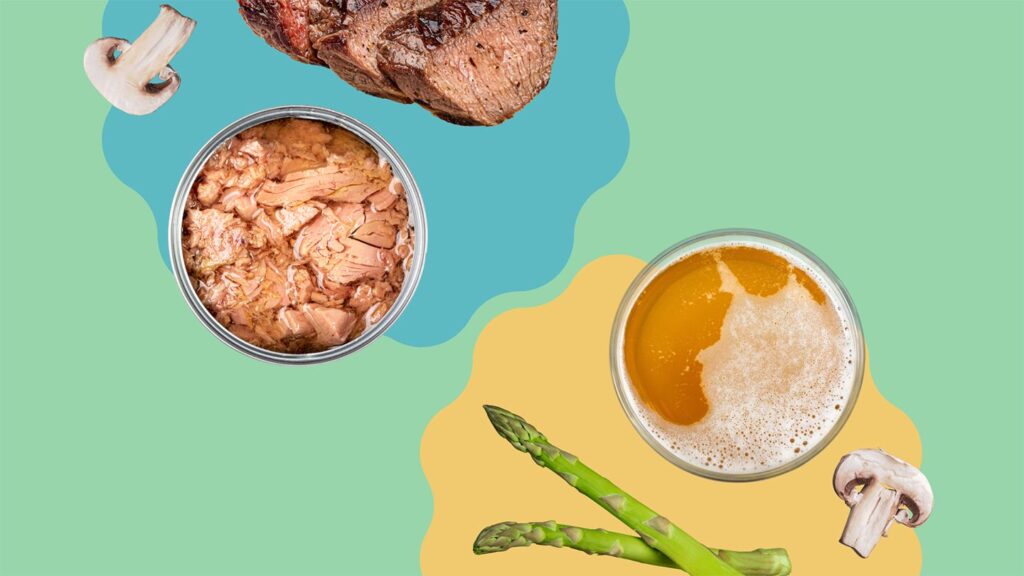If you live with certain health conditions, like diabetes, high blood pressure, or heart disease, you might be at a greater risk of developing a type of arthritis called gout, which inflames the joint around your big toe. In this case, your doctor might recommend limiting the amount of foods you eat containing purines — a compound found naturally in the body and in things like red meat.
When purines break down, it leads to the production of uric acid. While some levels of uric acid in the blood are normal (typically between 6 and 7 milligrams per deciliter), too-high levels of the substance can cause crystals to form and build up around your joints, leading to or worsening gout.
Not everyone gets gout from uric acid; however, your doctor might recommend limiting the amount you get from your diet if you’re at risk. Read on for the four major food groups that lead to higher uric acid levels, according to medical research.
1. Red Meats
Red meat is a main source of purines in the diet, especially organ meats like liver, which leads to uric acid buildup. Other meats that increase uric acid include beef, lamb, veal, and pork. If you’ve been diagnosed with gout or a blood test reveals that you have high uric acid levels, these meats should be limited or even avoided.
2. Seafood and Fish
Certain types of seafood are great sources of healthy fat — also known as omega-3 fatty acids — which can help reduce your risk of heart disease and stroke. But it’s also a major source of purines in the diet, leading to increased uric acid levels. Tuna, mackerel, herring, and anchovies are among the highest in uric acid, as well as lobster, scallops, and shrimp.
Typically, it’s recommended to get 3.5 ounces of cooked fish per week. However, you may need to limit the amount you eat if your uric acid levels are high.
3. Certain Vegetables
There is mixed evidence to show that certain vegetables lead to higher uric acid levels. Beans, peas, lentils, spinach, cauliflower, asparagus, and mushrooms contain purines, but moderate amounts of each are unlikely to increase uric acid levels significantly.
If in doubt, ask your doctor or a registered dietitian about whether you can eat certain vegetables that contain purines. They may suggest you simply limit the amount of purine-rich veggies you consume and instead add other vegetables high in magnesium, for example, to help decrease uric acid buildup in the blood. Magnesium-rich veggies include broccoli, potatoes, carrots, and avocados, according to the Cleveland Clinic.
4. Beer and Alcohol
Alcoholic beverages don’t contain purines or uric acid themselves, but they can increase the production of purines in your body. Try to limit or avoid beer and hard liquor specifically, as both have been shown to increase the risk of developing gout. (Wine has not been shown to have the same influence.) In general, it’s best to limit all alcohol consumption to two or fewer servings per day, or completely abstain if you have a health condition that gets exacerbated by alcohol.

